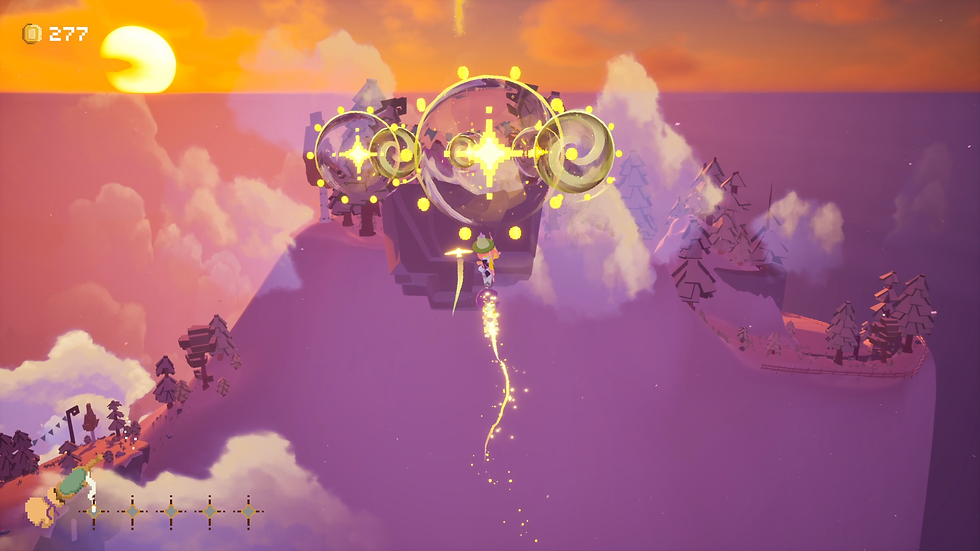Sports game developers deserve love too
- Nate Hermanson

- Jun 28, 2021
- 4 min read
Sports games like FIFA, NBA 2K, and MLB The Show are some of the most popular in our industry, raking in millions in money earned and units sold every year. They allow sports fans to relive success (or manifest it) for their favorite teams, to create fantasy worlds where all of their favorite players exist on the same team together, or to imagine a world where the player themselves could make it into the big leagues.
Developers of games like these work year-round, on several titles in the franchise all at once, to ensure that players have something waiting for them when that particular sports season rolls around.
And yet, the hate and toxicity that I witness these folks endure every single year is amongst the worst I've seen in the industry. And I'm sick of it. Let's talk about what these developers actually do and why I think they deserve to get a little more love than they get.

First, a little backstory.
For some reason, beyond all the games and genres I enjoy in any given year, there is one particular type of game that usually stands alone near the top of my most-played. Hell, some of them are among my most-played of all time. Yeah. It's sports games.
Several MLB The Show titles boast hundreds of hours of total playtime on my PS profile. The baseball management simulation series Out of the Park Baseball has multiple entries in my Top 10 most-played games on Steam. And that's not even the only place I play those games.
I love sports games. For much of the same reasons I listed above but also because of how deep into the nerdier side of sports I can dive into with them. A baseball player's statistics page can tell a fascinating story, and when I simulate a season in the MLB, that story changes each time.
It's all a bit dorky and just a long-winded way to say: I have a clear bias here.
Even with that bias, I hope that you'll come away with a little more appreciation for the folks hard at work on another year of sports games.
With less than a year of turnaround time, major sports game developers face a huge ask.
They're meant to polish photorealistic graphical assets further and further, putting each year's new class of rookies and stars on display while finding ways to improve the fidelity of the thousands of models for the existing players. There's only so many times we can see a high quality 3D model dripping with sweat before we reach truly diminishing returns.
Folks ask these devs to innovate with game modes that have years of history and expectations — and when they try to do it, inevitably chunks of the audience are left feeling ostracized by the changes. If they don't do anything, though, others call them lazy and uninspired. It's a lose-lose scenario.
Sports game devs are also expected to find a way to justify their annual full price releases (which have inflated all the way up to $70 with next-gen), particularly against the money-making efforts of higher ups who ask them to implement some of the shadier systems. Ultimate Team, Diamond Dynasty, MyTeam: Whatever these modes are called, they all amount to the same core lootbox focus that ask players to recollect players in card form each year.
And again, they're expected to do all of that development while concurrently developing the current year's release and the one that will follow, as well as continuing to support the previous year's game. Most of these teams are in a near-constant state of development on almost three AAA releases at a time. Imagine that.
The fact that ANY sort of game releases every year, let alone one that still maintains the level of quality that most of these franchises have, is a miracle.
And yet the fanbases for these games can only ask for more. Sure, they buy each release, but the toxicity found in any Twitter thread of a game's server downtime is enough to make you wanna give the whole team a hug.
Beyond that, there's a widespread belief amongst gamers that the work these development teams do is minimal — that each year, they simply update rosters and slap a slightly shinier coat of paint on the whole thing and call it done. It's such a reductive view that hurts the hundreds of developers that bring these games to life.
Look, I'm not saying that these developers should avoid any criticism. Some of what I described in the last paragraph actually DOES happen coughFIFAonSwitchcough. And toxicity in gaming communities goes way further than just the folks who work on sports games.
But I think the unique combination of toxicity and general lack of knowledge surrounding how much work sports game devs put in for these annual releases turns into a particularly frustrating problem.
video games are good will always preach for empathy in the games industry and that's what I ask for here. Take corporations to task for shitty decisions while showing love for those who put in the grueling hours to make these games reality.
Because without them, how would I ever see what it's like for my sports teams to win their biggest games?





Comments